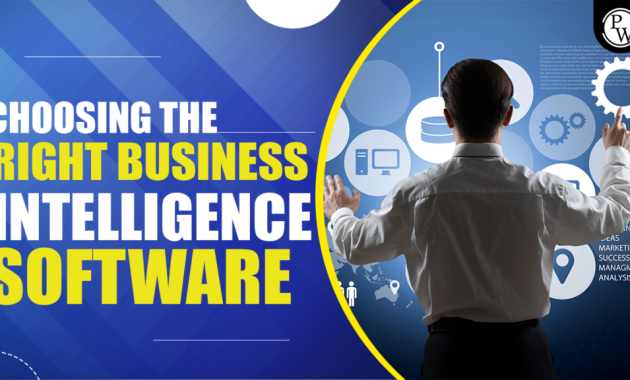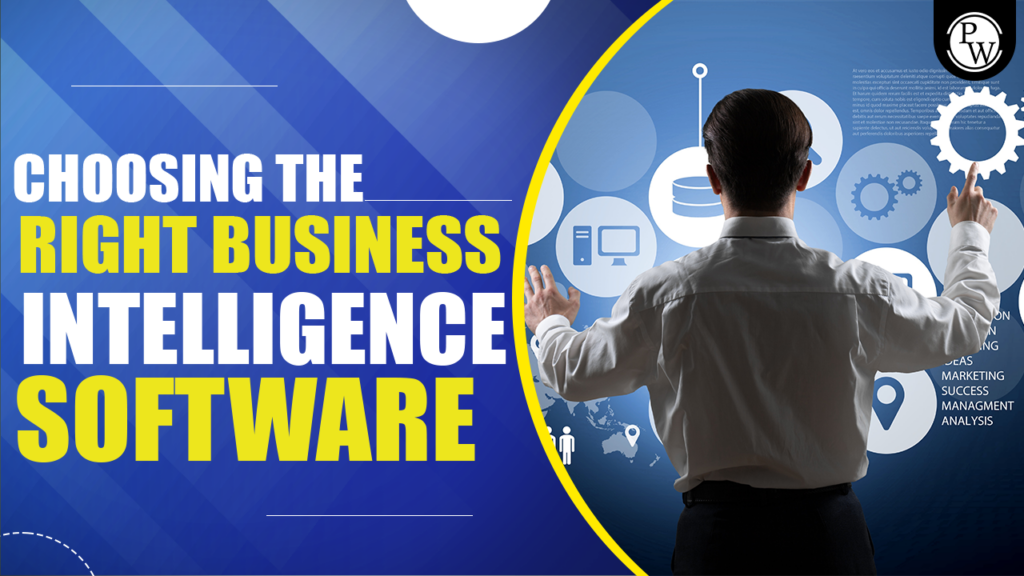
Unlock Efficiency: How Advance Business Intelligence Software is Transforming Businesses Today
In today’s fast-paced business environment, data reigns supreme. Businesses are constantly bombarded with information, but raw data alone is often insufficient. The key lies in transforming this data into actionable insights. This is where Advance Business Intelligence (BI) software comes into play. It empowers organizations to make data-driven decisions, optimize operations, and ultimately, achieve greater efficiency. This article will delve into the transformative power of Advance Business Intelligence software, exploring its benefits, applications, and the future of data-driven decision-making.
The Evolution of Business Intelligence
The concept of Business Intelligence has evolved significantly. Early BI systems focused on basic reporting and analysis. These systems often required significant technical expertise to operate. They were also limited in their ability to handle large volumes of data. Modern Advance Business Intelligence software represents a paradigm shift. It leverages cutting-edge technologies such as artificial intelligence (AI) and machine learning (ML). This allows for more sophisticated analysis, predictive modeling, and automated insights. This evolution has democratized data analysis, making it accessible to a wider range of users.
Key Benefits of Advance Business Intelligence Software
- Improved Decision-Making: Advance Business Intelligence software provides a 360-degree view of business performance. It identifies trends, patterns, and anomalies. This allows businesses to make informed decisions, minimizing guesswork and maximizing opportunities.
- Enhanced Efficiency: Automation is a key feature of modern BI systems. Automating data collection, analysis, and reporting frees up valuable time and resources. This allows employees to focus on more strategic tasks.
- Cost Reduction: By optimizing processes and identifying areas of waste, Advance Business Intelligence software can significantly reduce operational costs. Better inventory management, streamlined supply chains, and optimized marketing campaigns all contribute to cost savings.
- Increased Revenue: Identifying new market opportunities, understanding customer behavior, and personalizing products and services can lead to increased revenue. Advance Business Intelligence software helps businesses capitalize on these opportunities.
- Competitive Advantage: In today’s competitive landscape, data is a crucial differentiator. Businesses that effectively leverage Advance Business Intelligence software gain a significant advantage. They can respond to market changes faster and anticipate customer needs more effectively.
Core Features of Advance Business Intelligence Software
Advance Business Intelligence software offers a wide range of features designed to transform data into actionable insights. These features typically include:
- Data Integration and Preparation: The ability to connect to various data sources, clean and transform data, and prepare it for analysis. This is a crucial first step.
- Data Visualization: Interactive dashboards, charts, and graphs that make complex data easy to understand. Data visualization is key to communicating insights effectively.
- Reporting and Analysis: The ability to generate reports, perform ad-hoc analysis, and identify trends and patterns. This is the core function of BI software.
- Predictive Analytics: Using historical data to forecast future trends and outcomes. This is a powerful tool for proactive decision-making.
- AI and Machine Learning: Automated insights, anomaly detection, and intelligent recommendations. This is where BI is heading.
- Collaboration and Sharing: The ability to share insights and collaborate with colleagues. This promotes data-driven decision-making across the organization.
Applications Across Industries
The applications of Advance Business Intelligence software are vast and span across numerous industries. Here are a few examples:
- Retail: Understanding customer buying patterns, optimizing inventory levels, and personalizing marketing campaigns.
- Manufacturing: Optimizing production processes, reducing waste, and improving supply chain efficiency.
- Healthcare: Improving patient care, optimizing resource allocation, and identifying areas for cost reduction.
- Finance: Detecting fraud, managing risk, and improving investment decisions.
- Marketing: Tracking campaign performance, understanding customer behavior, and personalizing marketing efforts.
Choosing the Right Advance Business Intelligence Software
Selecting the right Advance Business Intelligence software is crucial for success. Consider the following factors when making your decision:
- Your Business Needs: Identify your specific business goals and data analysis requirements.
- Data Sources: Ensure the software can connect to your existing data sources.
- Ease of Use: Choose a software that is user-friendly and requires minimal technical expertise.
- Scalability: Select a software that can scale to accommodate your growing data volume.
- Cost: Consider the total cost of ownership, including software licensing, implementation, and training.
- Support and Training: Ensure the vendor provides adequate support and training.
The Future of Advance Business Intelligence
The future of Advance Business Intelligence software is bright. We can expect to see continued advancements in AI and ML. This will lead to even more sophisticated analytics and automated insights. Data democratization will continue, making data analysis accessible to everyone. The integration of BI with other technologies, such as the Internet of Things (IoT) and cloud computing, will also become increasingly important. This will enable businesses to collect and analyze data from a wider range of sources. This will provide a more complete view of their operations. The focus will shift towards proactive, predictive analytics. This will enable businesses to anticipate future trends and make data-driven decisions. The ultimate goal is to empower businesses to operate more efficiently, make better decisions, and achieve sustainable growth.
Implementation Strategies for Advance Business Intelligence Software
Successfully implementing Advance Business Intelligence software requires a strategic approach. Here are some key steps:
- Define Objectives: Clearly define your business goals and the specific questions you want to answer with data.
- Data Audit: Assess your existing data sources and their quality. Identify any gaps or inconsistencies.
- Choose the Right Software: Select the BI software that best meets your needs and budget.
- Data Integration: Connect the software to your data sources and prepare the data for analysis.
- Training and Adoption: Train your employees on how to use the software and encourage its adoption throughout the organization.
- Monitor and Optimize: Continuously monitor the performance of the software and make adjustments as needed.
Conclusion
Advance Business Intelligence software is no longer a luxury, but a necessity. It empowers businesses to unlock the value of their data, make data-driven decisions, and achieve greater efficiency. By embracing the power of BI, organizations can gain a competitive advantage and thrive in today’s data-driven world. The key is to choose the right software, implement it strategically, and continuously optimize its use to achieve your business goals. The future of business is data-driven, and Advance Business Intelligence software is the key to unlocking that future. Businesses must embrace these tools to stay competitive. The power of data is immense. Therefore, smart businesses invest in BI.
[See also: The Role of Data Analytics in Business Strategy; Data Visualization Best Practices; How to Choose the Right BI Tool]

